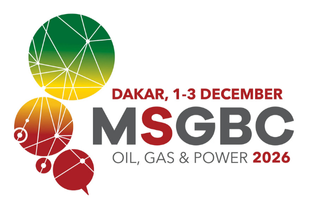5 Sectors Set to Benefit from Oil, Gas Development in Senegal
)
Agriculture
Senegal’s newly-elected President Bassirou Diomaye Faye has established agriculture as a top priority for the country’s economic growth. With over 60% of Senegal’s population employed in the sector, agriculture stands to benefit from the anticipated increase in GDP driven by first gas and oil production. Former President Macky Sall previously allocated $4 billion to modernize the farming and agricultural sector under the Emerging Senegal Plan (PSE). Notably, a urea manufacturing facility, being developed by Petrosen subsidiary Senegal Fertilizer Company, is set to boost agricultural output by reducing fertilizer imports, lowering Senegal’s trade deficit and bolstering overall agricultural productivity upon its completion by 2027.
ICT
As part of the PSE, Senegal’s national information and communications technology (ICT) strategy aims to foster an investment-friendly environment for digital services growth. To achieve this, the government is spearheading the Digital City project in Diamniadio. Representing a total investment of €70 million – primarily funded by the African Development Bank (€61 million) and the Government of Senegal (€9 million from future oil and gas revenues) – the project’s first phase will focus on building offices, incubators, research centers and a data center.
Infrastructure
To facilitate oil and gas exports, Senegal is revitalizing its infrastructure. Grands Trains du Sénégal is spearheading an initiative to revamp the national rail and logistics network, rehabilitating 209 km of rail, constructing nine new stations and establishing depots and dry port terminals. Plans to extend historical rail links with Mali are also in progress, with Mali already having expressed interest in Senegal’s hydrocarbon production. In addition, Senegal is developing the Port of Ndayane, which will serve to replace the congested Port of Dakar by 2027 and facilitate international exports.
Renewable Energy
Senegal aims to utilize natural gas as a transitional fuel for power generation, with a goal of reaching 40% renewable energy in its power mix by 2030. The country – which holds significant untapped solar and wind power potential – has already prioritized the development of its renewable energy sector through facilities like the Senergy 2 Solar Power Plant and Taiba N’Diaye Wind Farm. President Faye’s long-term vision involves using oil and gas revenues to finance sustainable growth, construct additional high-capacity renewable energy plants and implement Power-to-X projects for green hydrogen production.
Power
Senegal is targeting universal energy access by 2025 and plans to convert all current heavy fuel plants to gas-to-power plants, with a convertible production capacity estimated at 400-500 MW. The ongoing construction of the 300 MW Cap des Biches combined-cycle power plant aims to leverage domestic gas supply to lower electricity costs by 2035. Spearheaded by power generation company West African Energy and state-owned utility group Senelec, the combined-cycle power plant is poised to generate 25% of Senegal’s power. Additionally, the Sandiara gas-fired power plant, led by Spanish firm TSK and local developer LFR Energy, will be the country’s largest, with a capacity of 360 MW.
Explore opportunities, foster partnerships and stay at the forefront of the MSGBC region’s oil, gas and power sector. Visit www.msgbcoilgasandpower.com to secure your participation at the MSGBC Oil, Gas & Power 2024 conference. To sponsor or participate as a delegate, please contact sales@energycapitalpower.com.

